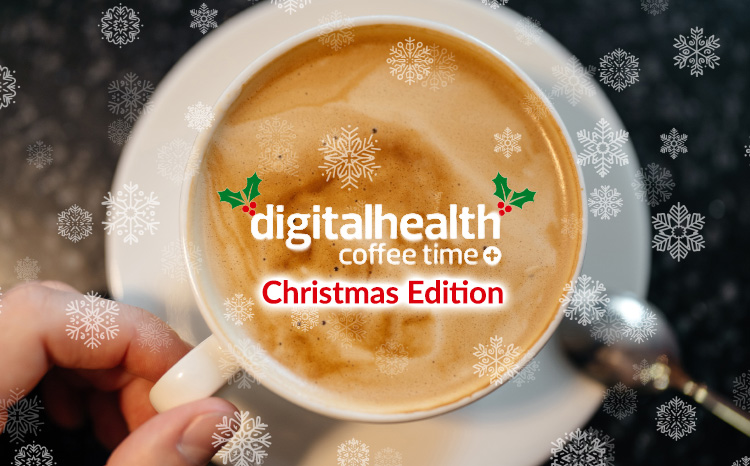Digital Health Coffee Time Briefing ☕
- 12 April 2024

Your morning summary of digital health news, information and events to know about if you want to be “in the know”.
???? News
???? Kaiser Permanente researchers have demonstrated that a machine learning-based predictive model can stratify suicide risk among patients scheduled for an intake visit to outpatient mental healthcare, according to a study published recently in JAMA Psychiatry. The research team emphasised that identifying individuals at risk for a suicide attempt early on in their care is crucial, as many patients stop mental health treatment after only one or two visits. However, doing so presents a challenge in the case of patients newly seeking treatment, as their records often lack an extensive mental health history. Alongside this lack of data, increasing suicide rates and demand for mental healthcare in the United States further underscore the immediate need for accurate clinical risk tools to improve patient outcomes.
???? The gut microbiome has a profound impact on the health and development of infants. Research shows that dysbiosis—or imbalances in the microbial community—is associated with gastrointestinal diseases and neurodevelopmental deficits. Researchers at the University of Chicago have developed a new generative AI tool that models the infant microbiome. This “digital twin” of the infant microbiome creates a virtual model that predicts the changing dynamics of microbial species in the gut, and how they change as the infant develops. Using data from fecal samples collected from preterm infants in the neonatal intensive care unit (NICU), researchers used the model, called Q-net, to predict which babies were at risk for cognitive deficits with 76% accuracy.
???? What if AI could alert health authorities in a country that a measles outbreak is brewing, allowing it to launch a vaccination campaign that could keep infection at bay? That’s the goal of a project from U.S. biotech company Ginkgo Bioworks and Northeastern University researchers with funding from the Bill & Melinda Gates Foundation: to develop a measles forecasting model that uses AI, Ginkgo announced today. The model will draw on public health reports, travel patterns, economic activity and other types of data to assess the risk of outbreaks and inform decision-making, the company said. The forecasting model will open access to help the global health community understand the likelihood of measles emerging and spreading within a given area.
???? NextGen Healthcare today announced that its AI-driven ambient listening solution NextGen Ambient Assist is now available to psychiatrists and other prescribers in the behavioral health (BH) space. By transcribing patient-provider conversations in real time and leveraging AI to summarise patient encounters within 60 seconds of an appointment, NextGen Ambient Assist saves medical professionals up to 2 hours of documentation time per day—boosting efficiency and enhancing the provider experience. This latest release is tailored to psychiatric workflows and has been calibrated to recognize and process the nuances of conversations about mental and behavioral health issues. NextGen Ambient Assist is conveniently accessed through the NextGen Mobile application using the provider’s smartphone.
???? In a study published this month in the peer-reviewed British Journal of Nursing, UK’s Frimley Health NHS Hospital found that 100% of IV leakage incidents were prevented by a proprietary patient monitoring system devised by U.S.-based ivWatch. The initial two-week phase of the study found that continuous infusion site monitoring using the ivWatch system detected infiltration and extravasation events earlier than relying on intermittent visual observation alone, and that detection occurred in 100% of IV infiltration events before a clinician could visually detect the event. Applied to the skin near the site of the IV, the ivWatch sensor and monitor performs over 18,000 checks per hour for any signs of infiltration or extravasation, notifying healthcare workers in real time of any leakage of fluid outside of the vein to help reduce the severity of adverse IV events.
❓ Did you know that?
It is estimated that around 30% of women diagnosed with breast cancer each year in the UK undergo a mastectomy, with 21% of these patients opting to have immediate breast reconstruction.
GC Aesthetics, the leading designer, manufacturer and distributor of breast implants and medical devices for the global aesthetics industry is providing a game-changing product designed to provide the answer to a well-known clinical need of thousands of women around the world.
FixNip NRI: The Nipple and Areola Reconstruction Implant is an unrivalled medical device which until now, a variety of surgical techniques have been used to try to reconstruct the nipple-areola complex with none providing a long-term aesthetic solution.
???? What we’re reading
From data to care: How AI can transform public health
???? Upcoming events
16 April, Cambridge – CHIME CIO Summit – CHIME International
24-25 April, ExCeL London – Digital Healthcare Show



